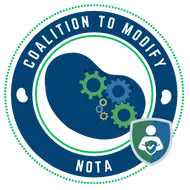The End Kidney Deaths Act Summary
The End Kidney Deaths Act is a ten year pilot program to provide a refundable tax credit of $10,000 each year for five years ($50,000 total) to living kidney donors who donate a kidney to a stranger, which will go to those who have been waiting longest on the kidney waitlist. By the 10th year after the passage of the End Kidney Deaths Act, up to 100,000 Americans who were dying on the waitlist will instead have healthy kidneys, and taxpayers will have saved $10-$37 billion. Deceased donor kidneys last half as long as living donor kidneys, the gold standard of kidney care.
One author of the National Organ Transplant Act, Representative Al Gore, said 40 years ago in 1984 that if transplant centers conclude efforts to improve voluntary donation are unsuccessful, incentives including tax credits, should be provided to donors. The American Medical Association “supports well-designed studies investigating the use of incentives, including valuable considerations, to increase living and deceased organ donation rates and will seek legislation necessary to remove legal barriers to research investigating the use of incentives, including valuable considerations, to increase rates of living and deceased organ donation.”
A refundable tax credit means that the nondirected donor will receive either a tax credit or a check of $10,000 per year for five years. This tax credit will provide far more access to lifesaving transplants for the 90,000 Americans currently on the kidney waitlist. For the last 15 years, more than 50% of those on the waitlist die before they can receive a kidney transplant. 800,000 Americans currently suffer from kidney failure; that will likely exceed one million by 2030. From 2010-2021, 100,000 waitlisted candidates died or became too sick to be transplanted and died on dialysis. For the past two decades, only around 300-400 non-directed donors each year have donated kidneys to strangers. Frequently, kidneys from non-directed donors are used to initiate a chain of kidney transplants for incompatible donor/recipient pairs called kidney chains. This multiplies the positive impact of non-directed donation. The longest chain included 114 recipients. Non-directed donors do not include people who are donating on behalf of a specific person in a paired exchange or chain donation.
Kidney transplantation not only saves lives; it also saves money for the U.S. taxpayer. The federal government spends around $50 billion dollars per year (1% of the $5 trillion collected in annual taxes) to pay for 550,000 Americans to have dialysis therapy. This is a cost of approximately $100,000 per year per patient, a treatment that is far more expensive than transplantation.
Regarding deceased donation, fewer than 1% of deaths occur in a manner (in a hospital on a ventilator) that enables the organs to be recovered. Currently, the 60% of Americans who are registered as deceased donors provide kidneys for about 20,000 Americans annually. If the deceased donation system were working at an optimal level, we could add around 2,000 new kidneys per year, not nearly enough to end the kidney shortage.
Removing all disincentives for living kidney donors has wide support within the transplant community. The End Kidney Deaths Act will supply more lifesaving kidneys to those who are least likely to receive a kidney from a relative or a friend —primarily middle- and lower-income Americans, and rural kidney patients.
Eminent leaders in the transplant community, kidney dialysis patients, recipients and donors support the End Kidney Deaths Act. When Americans want to support their community, Congress has provided them with financial incentives. For example, we have tax credits for volunteer firefighters, parents who adopt children, and other pro-social activities. Kidney donation is consistent with behavior that improves society at large.
95% of those who become living donors state that they would do it again if they could because saving a life is emotionally rewarding. Kidney donation is safer than both childbirth and appendectomies. The majority of American voters believe living donors should be financially incentivized to increase donation rates. By providing a refundable tax credit to all living kidney donors who donate to a stranger, the End Kidney Deaths Act will bring us closer to finally ending the preventable deaths due to the tragic kidney shortage.

